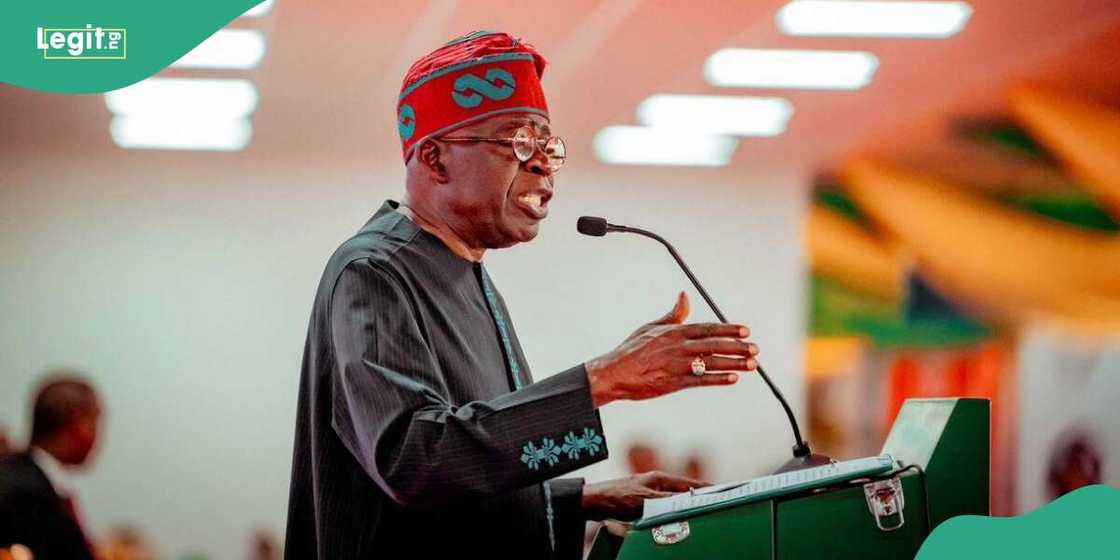Independence Day: List of Nigeria’s Key Achievements Since 1960
- Nigeria is set for another Independence Day celebration as it clocked 64 since gaining its freedom from the colonial master
- The country has gone through ups and downs, including several military rules and civil war, and its greatest achievement has been said to be its ability to sustain democracy since 1999
- Aside from democracy, hundreds of its achievements have been outlined ahead of the October 1 celebration
Don't miss out! Join Legit.ng's Sports News channel on WhatsApp now!
Nigeria will celebrate its 64th independence anniversary on Tuesday, October 1. This came as a result of the freedom to govern itself the West African country got from its British colonial master in 1960.
The country has experienced several ups and downs, ranging from military coups to civil wars and several others. However, it has made significant achievements in other areas, and hundreds of them have been compiled.

Source: Twitter
Okanlawon Gaffar, a political commentator, in an exclusive interview with Legit.ng, opined that the greatest achievement of the country since 1960 was its unbroken democracy since 1999
Gaffar said:
“A long stream of democratic rule since 1999 where we have been able to have elections consistently without military interjection.”
Below are a major list of Nigeria's achievements since 1960:
Economic Achievements
- Discovery of oil (1956) and subsequent growth of the petroleum industry.
- Establishment of the Nigerian Stock Exchange (1960).
- Development of the manufacturing sector, with growth in textiles, food processing, and construction materials.
- Increased GDP from $4 billion in 1960 to over $248 billion in 2022.
- Diversification efforts, including agriculture, mining, and ICT.
Infrastructure Development
- Construction of major highways, bridges, and airports.
- Establishment of Nigerian Railways Corporation (1960).
- Development of seaports, including Lagos and Port Harcourt.
- Expansion of telecommunications infrastructure.
- Completion of key projects like the Third Mainland Bridge (1990) and Abuja-Kaduna Railway (2016).
Education
- Establishment of the University of Nigeria (1960) and other federal universities.
- Expansion of primary and secondary education.
- Introduction of the National Youth Service Corps (NYSC) program (1973).
- Growth of private universities and institutions.
- Improved literacy rates from 37% in 1960 to 73% in 2022.
Healthcare
- Establishment of the Nigerian Institute of Medical Research (1977).
- Development of teaching hospitals and specialist hospitals.
- Introduction of the National Health Insurance Scheme (NHIS) (2005).
- Efforts to combat diseases like polio, malaria, and Ebola.
- Improved life expectancy from 37 years in 1960 to 59 years in 2022.
Politics and Governance
- Transition from military rule to democracy (1999).
- Establishment of the Independent National Electoral Commission (INEC) (1998).
- Conduct of relatively peaceful elections (2011, 2015, 2019).
- Passage of key legislation, such as the Freedom of Information Act (2011).
- Strengthening of anti-corruption agencies like EFCC (2003) and ICPC (2000).
Sports and Culture
- Winning African Cup of Nations titles (1980, 1994, 2013).
- Olympic medal wins (1996, 2008, 2016).
- Growth of Nollywood, Africa's largest film industry.
- Recognition of Nigerian music globally (Afrobeats).
- Preservation of cultural heritage sites like Osun Osogbo Sacred Grove.
Other Notable Achievements
- Membership in international organizations (AU, ECOWAS, OPEC).
- Hosting international events (Commonwealth Heads of Government Meeting 2003).
- Contributions to global peacekeeping missions.
- Development of the Nigerian space program (NASRDA, 1999).
- Increased recognition as a regional power in West Africa.
Tinubu's ministers under pressure ahead of Independence Day
Legit.ng earlier reported that President Bola Tinubu's ministers have come under pressure to publicise the successes of the administration ahead of the 64th Independence Day anniversary of Nigeria.
This is because the minister of information and national orientation, Mohammed Idris, highlighted President Tinubu's progress since his inception.
Idris mentioned the local government autonomy and the roll-out of the CNG busses among others, despite hunger and hardship in the country.
PAY ATTENTION: Сheck out news that is picked exactly for YOU ➡️ find the “Recommended for you” block on the home page and enjoy!
Source: Legit.ng


